A Muzzarell
- 7.8
- Drama
- 2024
- 1h 26m
- PG-13
the debut feature by Italian director Diego Santangelo. A poetic coming-of-age road movie set in Campania, it follows a young boy’s journey from Castel Volturno to Bagnoli to fulfill his grandmother’s final wish for buffalo-mozzarella. A story of youth, social marginalisation, mythic landscapes and the search for redemption in a world that forgot how to wait.

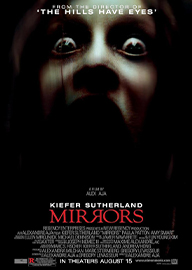
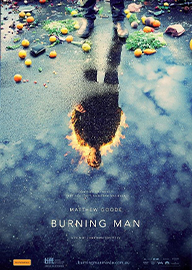
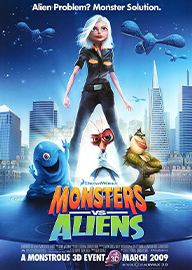
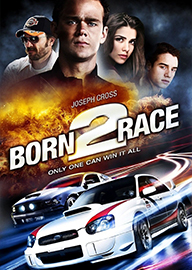





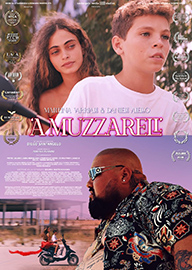


Comments
0Reviews
0Summery
1Please sign in to comment.
Please sign in to review.
In the dust-worn streets of Castel Volturno, where children grow up too fast and the glare of the motorino’s headlight burns into memory, a twelve-year-old boy named Daniele sets off on a journey that straddles desire and desperation. His grandmother, fading in a hospital forty kilometres away in Bagnoli among the ruins of the Campi Flegrei, has one last wish: to taste the mozzarella made by her son, Daniele’s father, a buffalo-farmer. That single request becomes the spark that launches Daniele and his friend Martina into a world that feels both familiar and strange, a landscape of underpasses and temples where myth breathes under streetlights. The journey begins on a scooter, transitions to bare feet, and becomes a rite of passage wrapped in the longing of youth and the weight of abandonment. Director Diego Santangelo uses the quest for food — simple, elemental — as the gateway into something far larger: the hunger of neglected childhood, the pull of escape, the ache of belonging.
Daniele and Martina ride into the night, through the grey suburbs and the myth-saturated landscapes of the Phlegraean Fields — the Tempio di Diana, the Sibilla’s cave, the Roman baths of Baia all shimmer like half-remembered dreams. Along the lanes, they enter shadows of drug-clans and social decay. Daniele, on the edge of becoming a courier for a trafficker, is pulled by systems bigger than himself: the economy of disconnection, the churn of youth without roots, the hunger for belonging disguised as bravado. Martina, whose body is already measured in likes and filters, walks beside him as both anchor and mirror: she knows the screen better than the street, but the night teaches them both.
As the night deepens, the film shifts tone — the scooter hum is replaced by the thud of footsteps, the light of lampposts by torch shadows. The presence of a mysterious woman, appearing at crossroads, in doorways and in dreams, overlays the realism of the story with something other-worldly: memory, myth, perhaps the spirit of the land itself. The film becomes not just a road-movie but a pilgrimage into lost innocence, into the underground of nightlife, into the tempo of young lives scanning for meaning in an era of smartphones and silence. The mozzarella, the buffalo-farmer, the grandmother’s breath—all become metaphors for nourishment withheld and reconciliation sought.
In the climax, Daniele faces the truth of his world: the path to the mozzarella crosses into the path of gang territory, addiction, and violence. His hope staggers under the weight of expectation and fear; Martina’s aspiration flickers in the neon glow of TikTok dreams. The journey reveals that survival isn’t a prize—it’s a decision made in the dark. In the final frames, Daniele and Martina stand on the threshold of something new: not innocence regained, but awareness awakened. The countryside of his grandmother’s memory remains beautiful but fragile; the city behind them remains indifferent. The film ends with the mozzarella eaten, the grandmother at peace, but the road still stretching ahead. In that space between arrival and departure, they become something else: adolescents standing on the edge of possibility, carrying the taste of home and the hunger for change.